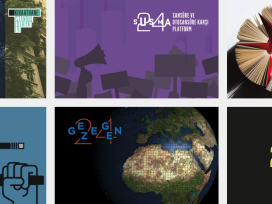Are the eastern nations, that have been stirring under the political, technological and economic pressure of the West for the last few centuries, making an effort to understand the West? It is a fact that the West has become a global civilization; it is on its way to eliminating many remnants and various institutions and ideas of the old cultures. Hence, western cultures are replacing eastern cultures. Eastern nations are gradually being westernized. But would this mean understanding the West? Today, in the four continents outside Europe, western techniques spread, cities are being built according to western models; furthermore, science councils, institutes and universities are founded in the most distant cultural centres, and modern industry is eliminating artisan workshops everywhere. But is this movement the result of something other than external pressure? Every novelty that comes from the West is being pushed to markets hungry for imported goods; machines and factories are being bought on a turn-key basis from western cities, urban and architectural plans are being transferred without alteration, even the interiors of homes, which are the first source of culture and tradition, are being decorated according to western models. Seen from the outside, the whole world is being westernized, is changing, and according to one point of view, is developing. But this cannot really be considered as a movement coming from inside. We cannot deduce from all this that the non-western countries really grasp western civilization. The main factor that underlies western civilization, with its culture, ideas, all of its internal and external structure, is certainly a mindset, a conception of humanity and liberty, a behaviour, an internal characteristic. It is not possible to be westernised without embracing western thought, without understanding its internal characteristics, that is, without understanding and experiencing the West with its soul and mentality.
Our current knowledge shows that internal developments, mental and emotional achievements – rather than external conditions – play a role in shaping human societies. Moreover, human beings are not shaped by science and technical knowledge only. They become human to the extent to which they awaken within themselves, as if they were facing divinity, to which they mould and construct themselves with their own feelings and with ideas of their own creation. In fact, positivist knowledge, a technical mind and skills alone could consume people from within, could make them ignoble, brutal, cause them to lose their depth, their humanity.
In view of such a possibility, which threatens even those communities that built this great western civilization, it is impossible to oversee the dangers facing eastern nations who are exposing their civilizations to a rapid, wholesale change under external influence. Today, even western cultures are being emptied out from within, losing content and becoming hollow. This trend could throw many eastern cultures, who have been in regression for centuries, whose internal content has long been emptied, into a horrible void, into a complete exhaustion. All cultures other than western culture could be completely eliminated within the next few centuries. In Asia, large communities are already being born consisting of human caricatures, people who do not know what they are talking about or what they are doing. These hulking masses might gradually become more inconsiderate, more soulless and devoid of culture. They might become contemporary primitives lacking all the values that make a human being human. They might be able only to use machines, but not to build them. Like savages armed with weapons, they might even be a great danger for humanity, for human civilization.
If we analyze carefully certain developments in Asia, we can easily notice where humanity might be headed in the near future. Our world faces a great threat. On one hand, western civilization is being exhausted from within, and on the other hand, is being defeated by forces in foreign countries using its own weapons. It is hard not be scared about how this trend could lead to ruin.
Aren’t the countries, like us, that must be westernized in the midst of serious danger? We have turned our faces to the West for approximately one hundred and fifty years. But this course should not be considered a direction consciously taken. We have not taken this road knowing what to do, what to be and how to be. If we carefully observe what happened during this time, we see that the experiences of nations who perforce turned west under the pressure of political and historical events are being repeated here. We have introduced modern techniques, organization models, at first to our army before everything else. We have looked at the West from outside, from a single cultural angle and even through a single window. About the western civilization we have known only the clichés, tried to put on an appearance and thus succumbed to mere imitation. What is the meaning, the source of the great event we are witnessing? Why are eastern civilizations in decline, why are eastern nations losing their independence?
An instinct, born from and developed under external pressure, has forced us into westernization, but we have not understood that we should take this feeling from the level of instinct and raise it to the level of ideas. Beginning with our first encounter, we should have tried to see this civilization from within itself; we should have tried to explore it as a concept, as a technological culture, as a whole starting from its origins. Although the eastern formation and mentality was a handicap, the disasters should have quickly alerted and awakened us to this idea. Above all, we cannot easily be excused for having been late in taking this direction. The western civilization we mistakenly thought as having emerged suddenly, out of nowhere, had a historical formation, certain sources and deep foundations dating back to ancient times. Even the intellectual, literary works, and novels of the West that we started translating with a prescribed eagerness were far from being the creation of the historical moment at which they were written. We did not notice for generations that these were not the works that best described western philosophy and sentiment. The sources of western philosophy could have been sought in Ancient Greece, in Rome, in the works, lives, behaviour and mindset of the old Christian saints, the church fathers and the first Christian philosophers. We should have translated, before the cheap novels of Paris, the Greek and Latin classics, and not with an apish enthusiasm which continued even into the Republican period; studies that would explain them, inform and help us to understand each and everyone of these works. Had we understood the West, we could have renewed our civilization. We would really be westernized only had we made this internal effort.
I wonder if, as a nation, we may be still holding on to that imitative behaviour.






